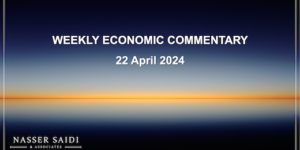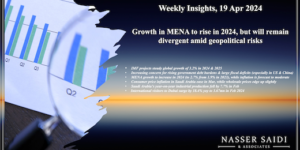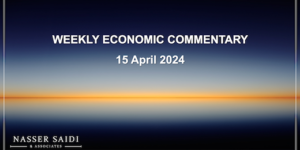Global Developments
- US Retail Sales in March fell by 1.1% and ex auto by 0.9%, on the month versus expectations of a slight increase. This figure pours water on the optimistic sentiment that was taking hold in the market.
- US core PPI remained unchanged on the month confirming that deflation is not a major worry for now. The same trend was confirmed by core CPI up 0.2% mom, and 1.8% yoy.
- US Industrial Production fell in March by 1.5% mom and capacity utilization to 69.3% close to an all time low.
- Concern over credit card default is mounting in the US after Capital One announced that credit card losses have outpaced the level of unemployment. The rate of charge-offs has reached 9.3%, an all time record.
- S&P Rating Services announced that 29% of junk rated European companies could default on their debt by the end of the year due to the credit crunch and deteriorating conditions which impact corporate earnings.
- A reminder that the crisis is far from resolved came from Switzerland where UBS announced a loss of US$1.74bn in Q1 and job cuts of 8,700 employees.
- Euroland’s Industrial Production was down almost 18% on the year, confirming the prevailing negative outlook.
- Asian exports may be staging a rebound in Q2. The latest harbinger was the 10.8%m/m rise in Singapore’s non-oil domestic exports in March (this came after a 1.6%m/m gain in Feb). This was not enough to stop another sharp decline in GDP: estimated to have fallen 19.7%qoq in Q1, following a 16.4%qoq, decline in Q4.
- Bullish data from China on money and credit growth – M2 growth accelerated to 25.5% year-on-year in March, up from 20.5% in Feb and a low 14.8% in Nov08. Also reported was an increase in foreign direct investment in March to $8.4 billion, from an average of $6 billion per month in the previous 4 months.
- China GDP grew by 6.1% in Q1, while Industrial Production in March rose by 8.3% on the year up from 3.8% in the period January/February. Both figures signal the start of a recovery.
- Poland announced that it will follow Mexico and draw on the IMF’s Flexible Credit Line
Regional Developments
- Kuwait’s Central Bank cut its interest rate by 25 basis points to 3.5 % to stimulate the economy.
- Bahrain’s Central Bank has announced plans of issuing a five-year Sukuk for $500 million on May 27, 2009. Plans of issuing another BHD 250 million three-year government bonds was also revealed, but without specifying a date. After Qatar, Kuwait and Abu Dhabi, with this move Bahrain will contribute to create an active bond market in the region.
- Business confidence in Saudi Arabia slipped in Q2 according to a survey by Dun&Bradstreet, but businesses in the non oil sector were rather optimistic on new orders.
- March inflation in Saudi Arabia slowed to 6.0% from 6.9% in Feb09. Additionally, Saudi Arabia’s central bank cut the reverse repurchase rate by 25 basis points to 0.5% to realign it with short-term rates after the ease in inflation. The benchmark repurchase rate was kept unchanged at 2.0%.
Market Intelligence on the UAE:
- UAE Central Bank FX reserves fell 32% last year to Dh193.7 billion (US$52.7bn), down from Dh285.9 billion the year before. The outflow was due in all likelihood to the repatriation of speculative capital triggered by expectation of a revaluation of the dirham in mid 2008.
- Dubai Properties and Sama are not merging according to Hashim Al Dabal Chuaitman of Dubai Properties.
- Dewa revenues increased by 52% in 2008 on lower production cost and surging demand for utilities.
- The IMF has lowered its growth forecast for the UAE this year to 2.1% on expectations of lower oil prices and a global recession
- The Abu Dhabi Judicial Department announced the creation of courts specifically dedicated to contract and construction disputes, medical liability and negligence cases, banking and finance issues, insurance claims and compensation demands in a sweeping effort to modernize the Emirate’s judicial system
- Moody’s Investors Service has downgraded the long-term foreign currency and local currency issuer ratings of Shuaa Capital by two notches to Ba1 from Baa2 and its short-term ratings to ‘not-prime’. The rating outlook is negative due to deteriorating fundamentals, especially recurring profitability and weakening liquidity.





